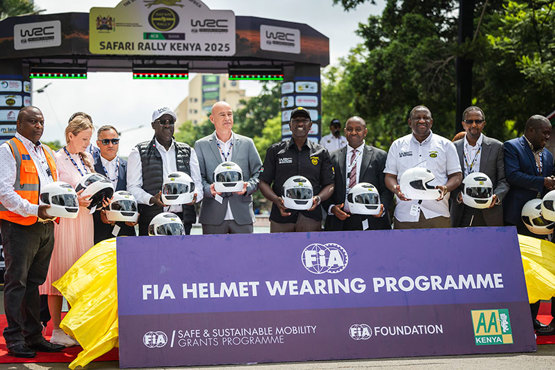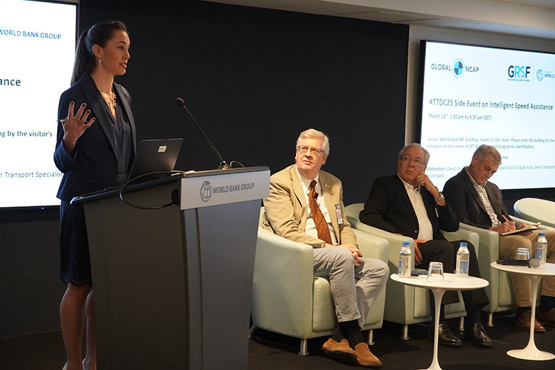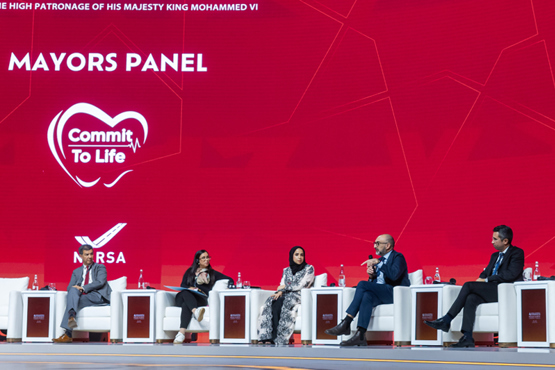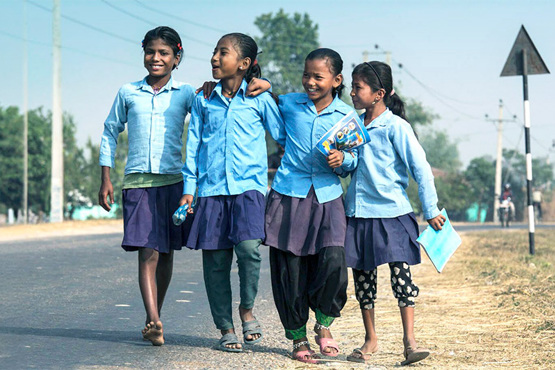Spotlight on Mongolia road safety, supported by FIA Foundation and partners
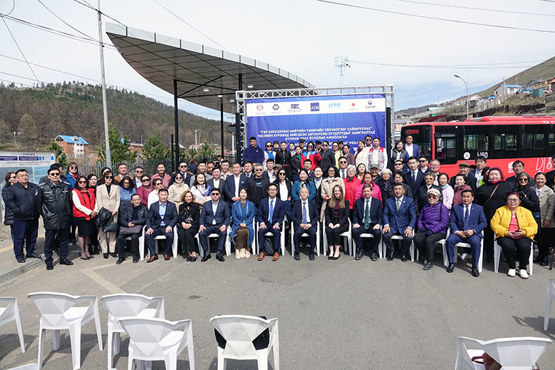
In Mongolia, the FIA Foundation joined partners Eastern Alliance for Safe and Sustainable Transport (EASST) and the Asian Development Bank (ADB) in a special road safety roundtable and the launch of a new child road safety programme.
In the Mongolian capital of Ulaanbaatar, a series of high-profile road safety events have raised political and public awareness. Road traffic crashes are one of the leading causes of death in the country, with around 400 lives lost, including up to 50 schoolchildren, each year. As well as saving lives, safe roads have a vital role to play in economic development; according to World Bank estimates, the annual economic cost of the country's road crashes is $438 million, equivalent to 3.9% of the entire of Mongolia's GDP. Road safety is a particular issue in the ger districts of Ulaanbaatar, where poor road infrastructure increases risk, particularly for pedestrians and public transport users.
The Safe Schools and Community Road Safety Campaign was launched with ADB, FIA Foundation, EASST, and GerHub at a special ribbon cutting and public awareness event with students, teachers, police, and technical partners. Speakers included: Kikuma Shigeru, Deputy Chief of Mission, Embassy of Japan in Mongolia; Solongo Batsaikhan, Head, Foreign Relations and Cooperation Department, Governor’s Office of Capital City; National Road Safety Council representative Nerguibaatar Tsevegjav; Aggie Krasnolucka, FIA Foundation Programmes Director; Zoljargal Ganbaatar, Police Lieutenant Colonel, Head, Chingeltei District Traffic Police Division; Otgonjargal Davaanyam, Head, Public Transport Department; and Khurelbaatar Vandanchimed, Governor of 17th Khoroo.
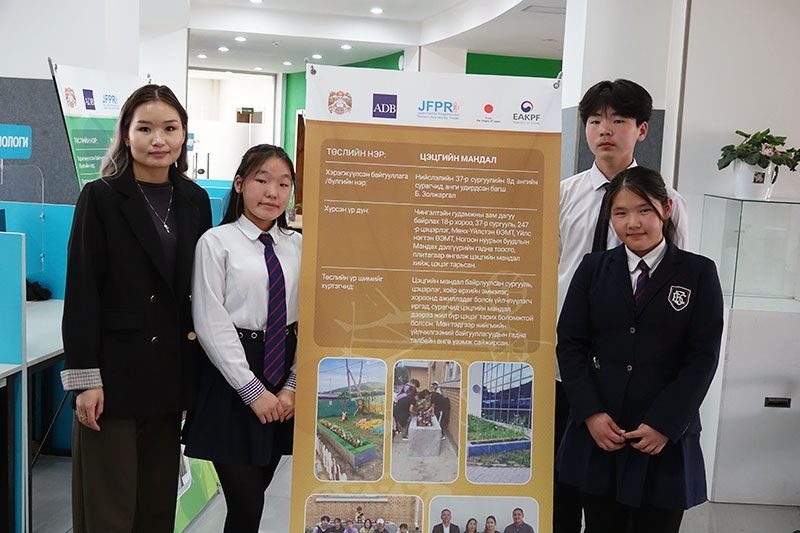
The initiative is promoting road safety in school zones and in key corridors with a focus on safe speeds, pedestrian travel, seat belts and distracted driving, awareness and acceptance of new road safety infrastructure and the role of police enforcement in supporting safe travel. EASST and Gerhub are also working with the city's road police to improve awareness of low-speed streets, speed compliance, and the role of enforcement.
Local NGOs Global Shapers and GerHub, working in partnership with EASST and the FIA Foundation, also hosted a Stakeholder Discussion Forum, 'Improving Road Safety Around Schools in Ulaanbaatar.' The forum was supported by the FIA Foundation and its Child Health Initiative Advocacy Hub. The Forum brought together key stakeholders, including representatives from the Traffic Police, the National Road Safety Council, the Ministry of Transport, and the Education Authority, as well as trauma specialists, academics, NGO leaders and others. The event provided an opportunity to learn from international experience and regional examples of school zone road safety improvements, as well as to discuss local challenges, opportunities, and solutions.
Aggie Krasnolucka, FIA Foundation Programmes Director, said: "The FIA Foundation believes that every child deserves a safe and healthy journey to school, and we are pleased to support this crucial work in Ulaanbaatar through our Child Health Initiative. It was encouraging to see the engagement of stakeholders and their interest to work together to promote children's road safety. Ulaanbaatar has already mandated 20kmh speed in school areas which showcases the commitment of the authorities and uptake of global road safety standard to promote children’s road safety.’
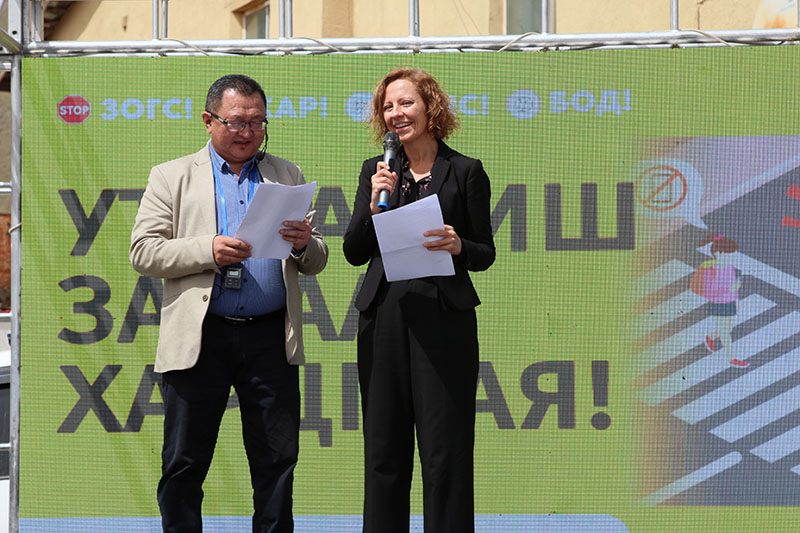
Rebecca Stapleton, Senior Transport Specialist, Transport Sector Office at the Asian Development Bank, said “The improving transport services in ger areas project, financed by the Japan Fund for Prosperous and Resilient Asia from the Government of Japan, has improved safety for residents along Chingeltei corridor in Ulaanbaatar through the provision of pedestrian facilities, speed reduction infrastructure and road safety education materials for local schools. ADB is grateful for the support of partners including the FIA foundation for promoting road safety behaviour change campaigns and enforcement activities in the project area, helping us to achieve system wide safety interventions for safer roads and safer road users.”
Emily Carr, Deputy Director of EASST, added: “EASST is delighted to see children’s road safety rising up the agenda in Ulaanbaatar. Multi-sectoral engagement on the issue, as we have seen during our visit, is essential to achieving good road safety outcomes. Over the next 12 months, we will be working closely with our local partners Global Shapers and GerHub to build on the work that has been done so far and call for more systematic improvements to be introduced around school zones in Mongolia to ensure every child has a safe journey to school.”
